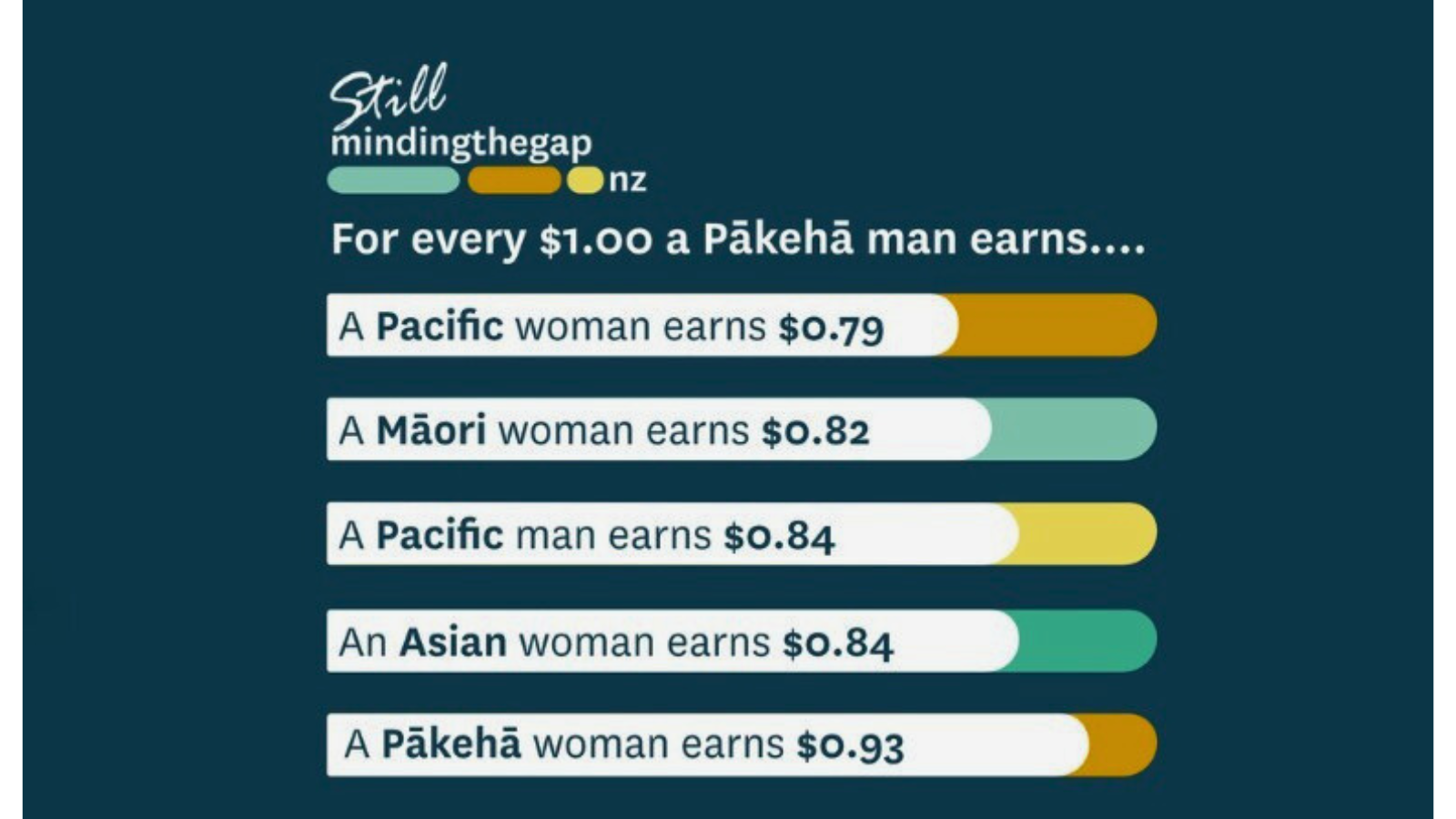

A 5.2 per cent national gender gap hides the bigger gaps for Māori, Pacific, ethnic and disabled women.
Photo/Amalgamated Workers Union
NZ’s new pay law helps workers talk but still hides the real gaps
Campaigners say the law won’t close the big gaps for Māori, Pacific and ethnic women because employers still aren’t required to report pay disparities.


Kings bring OFC Pro League home as storms hit round three fixtures

Pacific children ‘paying the price’ in Aotearoa as unemployment soars, advocate warns


Pacific calls for action on climate change and illegal fishing at major ocean naval forum

Kings bring OFC Pro League home as storms hit round three fixtures

Pacific children ‘paying the price’ in Aotearoa as unemployment soars, advocate warns

New Zealand has a new law that protects workers who want to talk about their pay, and campaigners say this is a good step forward.
But they warn that the new legislation is not enough to fix the pay gaps that Māori, Pacific, and ethnic women face. They say New Zealand is falling behind other countries because we still do not require employers to report their pay gaps.
These gaps are big enough that women in Aotearoa are now “working for free” for the rest of the year. For many wāhine Māori and Pacific women, that unpaid period started back in mid-October.
Campaigners say this shows how serious the problem is and why stronger action is needed.
The Ministry for Women says the national gender pay gap has gone down to 5.2 per cent. But this number hides the much bigger gaps for Māori, Pacific, ethnic and disabled women. These groups are more likely to be underpaid, underused at work, or pushed into lower-paying jobs.
Experts say this is not about women’s choices, it’s about how workplaces make decisions. Dr Jo Cribb, campaign manager for Still Minding the Gap and author of new research on pay transparency, told William Terite on Pacific Mornings that only a small part of the pay gap can be explained by factors such as experience or education.

Dr Jo Cribb says the big problem is that employers do not have to show their actual pay gaps. Photo/Still Minding The Gap
She says around 80 per cent comes from decisions made inside workplaces, like who gets hired, who gets promoted, who gets overtime, and how pay is set. “And too often, those decisions end up with Pacific, Māori, Asian and all women being paid less.
“If you calculate what the average woman in Aotearoa earns and compare it to Pākehā men, there is a substantial gap,” she says. “Wāhine Māori and our Pacific sisters stopped working in mid-October. That’s nearly three months of effectively working for free.”
The Employment Relations (Employee Remuneration Disclosure) Amendment Act, passed in August, makes it illegal for employers to punish workers for talking about pay.
If a worker is treated badly after a pay conversation, it is now the employer’s job to prove the discussion was not the reason.

Pay secrecy has shielded unfair and unlawful practices. Photo/NZTCU
Unions have welcomed the law, but they also say it is only a first “significant step”. Melissa Ansell-Bridges, Secretary of the New Zealand Council of Trade Unions, says that workers' pay is “their own business” and “bosses should not be able to impose secrecy over personal information”.
Cribb says the big problem is that employers do not have to show their actual pay gaps. She points to other countries, such as the United Kingdom and members of the European Union, that already require this.
“We know that when countries require businesses to report their pay gaps, those gaps drop by 20 to 40 per cent. Transparency works. It forces organisations to confront the data and fix what they find.”
Cribb says New Zealand now looks behind the rest of the world. “In global forums, I’m often asked how New Zealand’s pay transparency laws are working. To be honest, I’m embarrassed.”
New Zealand once led the way on equal pay, with laws passed more than 50 years ago. And the public sector has made progress with recent pay-equity settlements.
But in the private sector, most tools remain voluntary. Businesses can choose to calculate their pay gaps or choose not to. Cribb says this voluntary system is the reason pay gaps stay hidden.
Watch Dr Jo Cribb's full interview below:
“It’s 2025. This is an incredibly easy law to put in place,” she says. “It doesn’t cost businesses much to report. For the businesses that have big gaps, they’re going to need to sort them - and isn’t that just fair?”
Still Minding the Gap is calling for the government to make pay-gap reporting mandatory for medium and large employers. They say the economic benefits are clear: women hired, more women promoted, stronger productivity and fewer families living in poverty.
“We need to really demonstrate to the government that we actually care about this,” she says. “This is about what families have in their pay packets, their ability to make choices and provide for their whānau.”